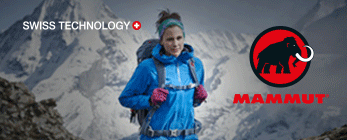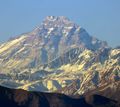ENG:Monte Aconcagua
|
|
|
| |||||||||||||||||||||||||||||||||||||||||||||||||||||||||||||||

|
Tiempo apropiado
- Trekking: La temporada oficial de apertura del Parque Provincial Aconcagua tanto para el ascenso como para el trekking es del 15 de noviembre al 15 de marzo y del 16 de marzo al 30 de abril, considerando este último, especial de la temporada de invierno.
- Randonnée: La admisión también está permitida durante la temporada de invierno, del 1 de mayo al 14 de noviembre, considerando la temporada de invierno restringida (verifique los ingresos durante esta temporada).
El horario de entrada al parque es de 8 a.m. a 6 p.m.
Acceso
Acceso en coche
Desde Mendoza hay 180 km de carretera asfaltada, debe tomar la RN 40 dirección sur, a 25 km, la RN 7 está conectada a Chile, cuando llega a la ciudad de Puente del Inca, continúe 3 km más hasta llegar a la entrada. al Parque, desde aquí 1 km de camino pavimentado hasta el Centro de Atención al Visitante.
Al salir de Mendoza, no tiene que llevar a cabo los trámites de inmigración en el Centro Fronterizo de Horcones, sí, para los que vienen de Chile, ya que tienen que ir a Mendoza para completar los trámites para ingresar al Parque.
Acceso en transporte público
Existen empresas de transporte público que parten desde la terminal de buses de Mendoza hacia Puente del Inca y las Cuevas.
También hay empresas privadas de transporte contratado que realizan excursiones al parque.
Las empresas y las tarifas se pueden consultar en la página del Ministerio de Turismo de Mendoza (teléfono: 0054 (0261) 420-2800, correo electrónico: turismo@mendoza.gov.ar, web: gov.ar/www.turismo.mendoza.gov.ar o en la terminal de autobuses.
El viaje dura aprox. 3:30 horas de Mendoza.
Description of the route
From Horcones to Plaza de Mulas
| All measures one way | - | Distance (kms.) | 28 km | - | Ascent meters | 2,275 m | - | Meters of descent | 785 m | ||
At the control post of Horcones (2950 masl), you must complete the procedures to enter the park, the place has parking, toilets and drinking water. Once the entrance check-ups are completed, the walk begins along the perfectly marked and signposted path. From the moment you enter the park, you can see the imposing southern face of the Colossus with all its presence. Approximately 15 minutes walk is the Horcones Lagoon (2980 masl), a good place to relax and eat something before continuing on your way. Continue for 45 minutes of walking along the path to the north, until you reach the hanging bridge that crosses the river Horcones (3070 meters above sea level) in front of the Durazno ravine, until here you can reach paying the daily pass to visit. Once crossed the bridge the path continues bordering the river, from here the road begins to have gentle slopes and then steepen more, but without presenting major difficulties. Before arriving at the junction of the Horcones Superior and Inferior rivers, there is the Confluencia camp (3390 masl), which owes its name to the merger of the aforementioned rivers. In this place the first camp is made where you must register at the ranger station, in addition to a free mandatory medical checkup to continue the trekking the next day to Plaza de Mulas. The area has companies that provide accommodation services, kitchen and private bathrooms, you can camp independently and use the public toilets, also has water for consumption, permanent medical assistance and helicopter for evacuations.The next day should start early, it is advisable to leave from 6:00 am, since this will be a very long and exhausting day of hiking between 8 and 11 hours (28 km approx), which requires more physical effort, taking into account that you can begin to feel the symptoms of height. Departing from Confluencia along the marked and signposted trail 10 minutes away is the division of the roads that lead to Plaza Francia and Mulas, the course of both is signposted by what does not confuse what to take. The path goes down to a small plain called Confluencia Inferior (former camping place) where the Horcones River is crossed by a small bridge to go back up the slope bordering the river. Overcoming this slope you enter the so-called Playa Ancha, a wide and picturesque flat creek that has no difficulty but makes you feel its slope at the end of your journey, you can follow several trails that go along the right bank of the Horcones Superior River. Approximately three hours away is Piedra Ibañez (3790 masl), a large rock that serves as a stop where to take the first rest, eat something and hydrate. One hour after the last break, continuing along the path ends Playa Ancha, the Fingers hill marks its end and the terrain changes its appearance, the ravine narrows and the path begins to climb steep slopes that make themselves felt, as a backdrop observe the Cerro Cuerno and the Horcones glacier, at the base of which is Plaza de Mulas. In this part of the route you can touch the base of the Aconcagua with your hands as the west face of the massif accompanies the journey. Continuing about 3 hours and averages approx. we reach an old military refuge (4050 masl) destroyed by an avalanche, the last place to recompose strength and face the end of the route, the so-called Cuesta Brava, which lives up to its name, taking into account the busy hours and the height gained . Once over the slope, the moraines of the Horcones glacier begin, where you have a panoramic view of the glacier and the Aconcagua base camp.
Going up the moraine we arrive at Plaza de Mulas (4350 masl), a small town of tents in the middle of the Cordillera, base of the normal Coloso route, fully equipped with housing, gastronomy, communications, health services, medical assistance, bars and even art gallery.
10 minutes from the camping area, is the Plaza de Mulas Hotel (4370 masl), a refuge with all services, next to the hotel there are areas where camping is allowed, paying a small fee you can use the hotel service , as the toilets and the dining room.
The trekking permit gives 7 days of stay in the park, so the stay in Plaza de Mulas can be extended for 3 or 4 days, in addition to enjoying the wonderful scenery and the different "climatic shows" offered by Aconcagua, you can ascend to the first camp of the Colossus called Plaza Canada (5050 masl) and contemplate an imposing view of the Andes as well as the panoramic view of the Horcones Superior and Cerro Cuerno glacier, or climb the Cerro Bonete (5100 masl).
Temperatures in summer are low, reaching -15 º C at night and weather changes are sudden and abrupt, registering snow and storms so you have to bring high mountain clothing and equipment.
When arriving and departing from Mulas, you must complete the check-in and check-out process as well as the obligatory medical check-up.
The return of Mulas to Horcones is done by the same way and it takes between 7 and 9 hours, if you want you can camp in Confluencia and continue the next day or continue until the exit of the park. It is necessary to take the precaution of wearing high mountain clothes along the way since there are storms and snowfalls of varying intensity, just as the temperatures present variations, the climatic changes are surprising.
From Plaza de Mulas to Nido de Cóndores

| All measures one way | - | Distance (kms.) | 5.3 km | - | Ascent meters | 1.203 | - | Meters of descent | 18 m | ||
After acclimatizing and resting at the Plaza de Mulas base camp, you should advance towards the Nido de Cóndores camp located at 5,400 meters above sea level. The journey lasts approximately 6 hours in a zigzag ascent, where the hauling of the terrain and starting to load more heavy backpacks make progress difficult.
The ascent is made by the east side of Plaza de Mulas until leaving on the left the Cerro Manso and thus continue east to Nido de Cóndores. Due to the extension of the ascent, the route can be divided by camping at Camp Canada (4,900 meters above sea level) or at Camp Alaska (5,250 meters above sea level). However, to consider these options, one must be sure of having a water source.
Nest of Condors to High Camp (refuge Berlin)
| Todas las medidas one way | ||
| Distancia (kms.) | 3,3 km | |
| Metros de ascenso | 1.344 m | |
| Metros de descenso | 385 m | |

On Nido de Cóndores is the Berlin camp (5,900 masl), a place that also has a wooden shelter to protect itself when the weather conditions are unfavorable.
On average this stretch lasts between 3 and 4 hours, always depending on the acclimatization to the height that has been reached, because although this is a much shorter section, factors such as altitude hinder breathing, making it go much more time as usual.
However, as it progresses, the complexities are offset by the beautiful landscape that with each step that takes place, becomes more impressive.
After continuing the road for a while, you reach the diagonal that leads to the refuge Berlin (5,900 masl), which represents the end of this stretch.
Camp Alto (refuge Berlin) - Summit
| All measures one way | - | Distance (kms.) | 3.3 km | - | Ascent meters | 1,344 m | - | Meters of descent | 385 m | ||
Leaving behind the Berlin shelter, the last section that ends at the summit of Aconcagua begins.
In general, the road is clear and of low difficulty, although it is necessary to continue taking into consideration the acclimatization to the altitude as an important factor to calculate the duration of the section.
As you follow the ascending path, you will arrive at El Gran Acarreo, a more complex point due to its steeper slopes and rocks that sometimes have to climb due to its large size.
Having overcome the above, reaching the summit of Aconcagua is a matter of a few minutes.
Expected time
The duration of the walk from Horcones to Confluencia is 3 to 4 hours and from 8 to 11 hours from Confluencia to Plaza de Mulas.



Permissions
The seasons of admission to the park are the following:
- Low season: from 15/11 to 30/11 - 21/02 to 03/15
- Average season: from 01/12 to 14/12 - 01/02 to 20/02
- High season: from 15/12 to 31/01
- Special winter season: from 03/16 to 04/30
- Restricted winter season: from 1/05 to 14/11
They govern for short, long and ascent trekking.
The permit to visit the Horcones Lagoon or to carry out the Trekking Day (up to the Horcones River Bridge), is managed at the Visitor Attention Center of the PPA located in Horcones. The visitor must present, at the moment of managing the permit, original DNI (Argentine) or original passport (foreigners).
The Short Trekking (3 days), Long Trekking (7 days) and Ascent (20 days) permit is managed at the PPA Visitors Center located in the City of Mendoza (Sec. Of Tourism - Av. San Martín 1143. 1st floor). The visitor must present, at the moment of managing the permit, original DNI (Argentinean) or original passport (foreigners), complete the issuance form and withdraw the deposit slip to make the payment of the fee (in Argentine pesos and in cash) in an "Easy pay" mouth.
Do not forget that the management of the permit is PERSONAL and the money is not reintegrated under any circumstances.
The entrance during the winter seasons should also be consulted in advance.
- The entry of minors is governed by special regulations. Consult.
- Children under 14 can only enter to Quebrada del Durazno (3,100 m.n.m.).
- Children between the ages of 14 and 18 can only enter with the authorization of both parents, certified by the competent authority.
- For foreign visitors the age limit of the country of origin is taken.
The rates of each season can be consulted on the Internet, since their price varies by season and may have modifications.
For inquiries and information about the Park, regulations, rates, income and seasons consult the official website of the Argentine Government's Aconcagua, [http: //www.turismo. mendoza.gov.ar the tourism page of the Argentine government] or call the Secretariat of Tourism of Mendoza 0054- (0) 261-4258751 or communicate via e-mail: informesaconcagua@mendoza.gov.ar
- Attention schedule.
- From 15/11/2015 to 03/15/2016: Monday to Friday from 8:00 a.m. to 6:00 p.m., Saturday, Sunday and holidays from 9:00 a.m. to 1:00 p.m.
- On 12/24/2015 and 12/31/2015: from 9:00 a.m. to 1:00 p.m.
- On 12/25/2015 and 1/1/2016 the permit center is closed.
Recommendations
- Checklist: Aunque sepas perfectamente lo que debes llevar, es preferible chequearlo al empacar. Esta ruta ha sido clasificada como Type 6 equipment checklist: high mountain, non-technical route and no ice walk.
- Do not forget to register in Guardaparques both at the entrance and exit, since the permits have a few days of validity, to forget the check out would incur that expired the term the rescue patrol would initiate the search of the person, besides charging a fine.
- In Confluencia and Plaza de Mulas you have to register with Park Rangers and have a medical check-up (the medical service is free and is included in the entry ticket fee as well as the evacuation by helicopter in case of emergency).
- To load water in Horcones since it is not counted on during the journey Horcones- Confluence since the Horcones River is not very accessible and its waters are turbid and muddy. From Confluencia to Plaza de Mulas there is water to supply, but it is recommended to load in the camp before leaving.
- Upon entry, Park Ranger grants numbered bags for garbage that are returned to the exit of the park, in case of losing it or find someone throwing it in places not allowed will proceed to a penalty that reaches USD $ 100.
- Remember that it is a park and a preserved area so any infraction will be sanctioned, inform yourself of the regulations before entering.
- Being a place of high mountain to verify the climatic forecast previously, the climatic changes are sudden and abrupt especially in the path Confluence - Plaza de Mulas.
- If you wish you can hire mules for the transfer of loads, there are companies that provide the service in Puente del Inca.
- You can communicate with the rescue patrol and park rangers within the Park 24 hours. through the emergency frequency 142.800 Mhz in VHF.
- Ver Recomendaciones para la altura
Photo Gallery
Top Aconcagua mountain looking to the SW with Volcán Tupungato and Cerro Juncal. Image: Pedro
Mount Aconcagua from the Cerro El Roble
Mount Aconcagua from the summit of Cerro El Plomo
Mount Aconcagua from the Cerro Plata, November 2011
Mount Aconcagua from Altos de Chicauma, July 2017




















